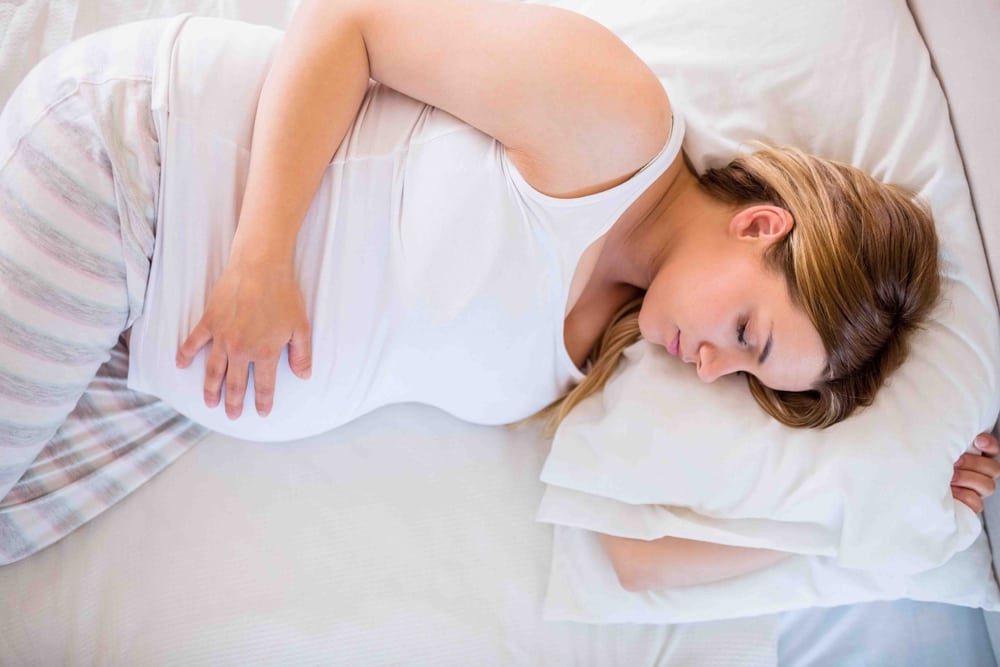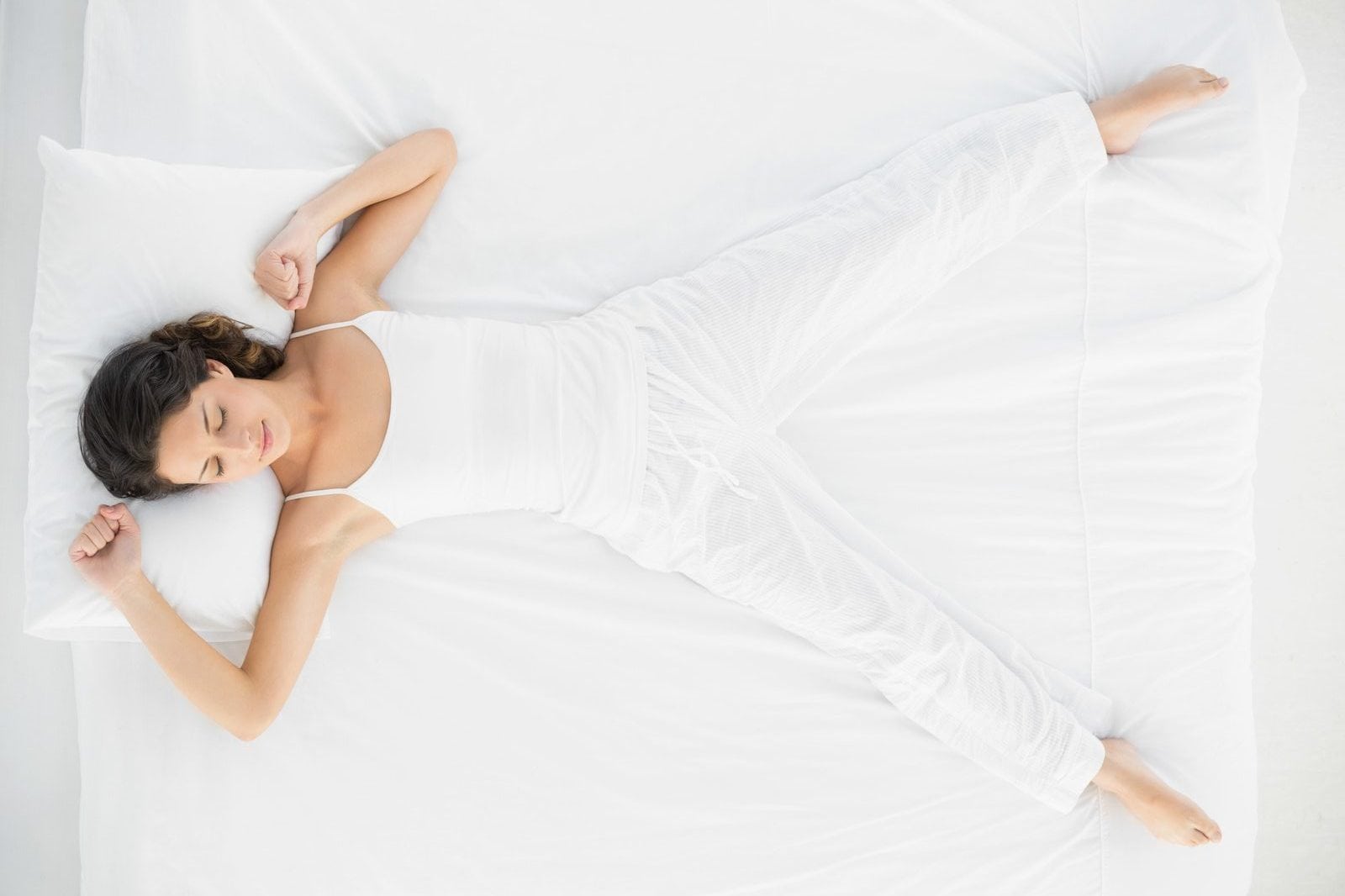Around 8 out of 10 women have trouble getting to sleep during pregnancy. This is due to a variety of reasons including the baby moving; lower back pain; problems with heartburn; getting up to use the toilet more often and just generally finding it difficult just to get comfortable. So what are the best pregnancy sleeping positions and why?
Sleeping on your left-hand side
The recommended position is lying on your left side with a pillow under your bump and another pillow between your knees. This helps get your spine into a neutral position, which tends to be the most comfortable position to lie in and makes the most sense physiologically.
Left side is good for:
1) Lymphatic drainage, toxins, ayurvedic medicine,
2) Brain toxins released better on left
3) Digestive system drains via gravity from large intestine into colon, stomach and pancreas both hang naturally as they are on the left
4) Circulation to heart better ( vena cava on right ) gravity also helps gravity aortic circulation.
5) Uterus is not squeezed by the liver
6) Uterus, kidneys and foetus have increased circulation
If you naturally roll onto your back during the night you can use pillows behind you to keep you propped on your left-hand side. Also, if lying on your side puts pressure on your hip try a mattress topper to soften the support underneath you.
Another option: Sleeping on your back.
After approximately 16 weeks, sleeping on your back tends to be uncomfortable. It can also make you feel faint, as the baby could press on the blood vessels in this position.
Sleeping on your back is good for:
1) Those who, especially in the 3rd trimester feel too heavy to sleep on their side. Sleeping propped up by a pillow , almost in a sitting position helps here.
2) Sleeping upright can also help with pregnancy heartburn, with some women preferring to sleep in an armchair or even propped on the end of a sofa.
Does sleeping on your back affect your baby’s health?
A 2011 study found lying on your back or right side increased the risk of stillbirth. The NHS responded by stating that the study did not conclusively prove that the sleeping position affects the risk of stillbirth and more studies were needed. The followed saying the risk of stillbirth is very low, regardless of a sleeping position. The main recommendation was to not to let disturbed sleep worry you. Mothers tend to move naturally when it becomes uncomfortable.




